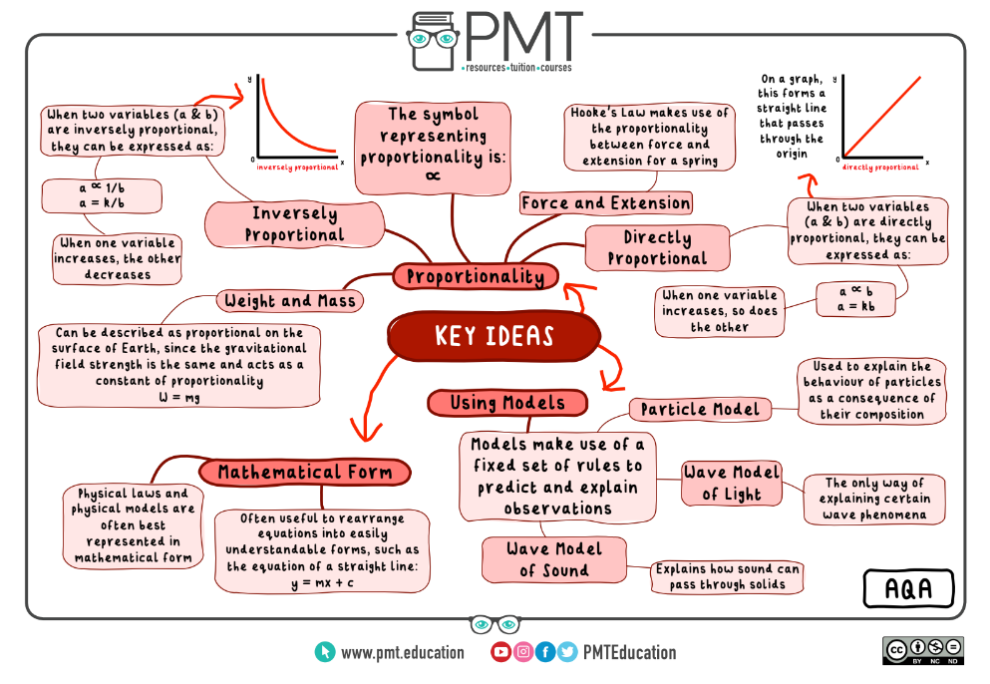Contents:
We may have free schooling in the UK, but that doesn’t mean it isn’t expensive: there’s the uniforms, the stationery, the textbooks, the transportation, the school lunches, the field trips…When all’s said and done, you can be left with quite a hefty sum on your hands. On top of that, students are eager to keep up with the latest trends and anxiety about grades can filter through, making them worry that they’ll fail if they don’t have the same calculator as X or the same tutor as Y. This is particularly true as children grow older and significant exams loom overhead.
Parents aren’t immune to this peer pressure. It’s easy to fall into the trap of thinking that you need to invest as much money as possible into your child’s education in order to give them an ‘edge’, and before you know it you’re in a veritable space race with your fellow parents. But, as in many areas of life, throwing money at a problem isn’t always the best solution.
You’re probably well aware of the ongoing cost-of-living crisis, and as winter draws to a close, we’re all feeling the pinch. You don’t want your child’s education to suffer because of your tighter budget; yet at the same time, if you’re not comfortable helping with homework and can’t fork out for a fancy tutor, it feels like there’s nowhere left to turn.
Luckily, there are many options available that are low-cost or completely free. Read on for tips on supporting your child’s education without having to break the bank.
Resources
Use free online resources
For every impressive-looking study resource that promises academic success behind a paywall, there’s certainly free online alternatives that will do just as good a job. However, the Internet is a big place, and the trick sometimes is just knowing where to look. Here are some pointers to get you started:
- Physics and Maths Tutor: If it’s free resources you’re after, then you’re in the right place already! PMT Education offers materials for every stage of the learning process, from those initial notes to the last-minute revision. There are mind maps, notes, past papers, and solution banks for a wide range of exam boards and subjects.
- BBC Bitesize: Bitesize is home to a wealth of information, covering school content from Primary to A Level. Students can find notes and quizzes sorted by topic and exam board. It doesn’t go into a lot of depth, though, so is best for those wanting to get the basics sorted. If your child is aiming for higher grades, Bitesize is a good starting point for revision, but it shouldn’t be used in isolation.
- Khan Academy: Khan Academy is an online learning platform that covers a huge range of subjects including maths, science, and history. Its courses take students step-by-step through topics, and their example questions and worked solutions can help get them ready for exams. Crucially, everything is free.
- YouTube Educators: The online streaming site is home to hundreds of hours of educational content, covering any subject you could possibly think of. There are channels run by individual teachers and education professionals, such as Mrs Whelan and Simon Deacon, or you can find content from bigger organisations like CrashCourse or PMT Education’s own channel, where you can watch walkthroughs of past exams. Additionally, there are channels that go beyond the curriculum and help put a fun spin on learning; for example, MinutePhysics, Stand-up Maths, and Tom Scott.

A PMT GCSE Physics mind map.
Go second-hand
Course textbooks are things that you simply have to have – until you don’t. This makes them uniquely suited for the hand-me-down cycle: every year, thousands of students find themselves lumbered with books they won’t need ever again, which means there are thousands of students looking to get rid of them on the cheap – or even for free!
Facebook Marketplace is a good place to look for people in your area who are selling or giving away their used textbooks. Neighbourhood ‘swap and share’ groups are also great as well as the marketplace on Nextdoor. As well as study materials, there may be people looking to give away school uniforms or computer equipment.
Getting hold of textbooks is a priority, but buying second-hand books is also a way to get a hold of your child’s recommended reading list for a specific class, or to encourage them to read for pleasure. AbeBooks is a great example of a second-hand book marketplace. You can find classics, both old and new, that are in perfectly good condition for a fraction of the price. Some purchases even come with a charity donation.
Don’t be ashamed to ask around. Not only will you be saving some cash this way, but you’ll also be saving the environment!
Unlock the power of your public library
Consider incorporating the local library into your child’s routine. It isn’t only a place to get books, though of course this is a big plus: many libraries provide common course textbooks and revision materials, which can usually be found in a dedicated section near the children’s and teenage fiction areas.
There are also many advantages that come from remembering the library is a location in its own right that is available for your child’s use. Libraries are dedicated quiet spaces, making them favourable for learning and studying. Many have desks available for working at, plus internet access and power supplies. For busy households, finding a workspace free from disruption or distraction is a tricky task; there might be disputes over who gets to use the desk or the computer, and if your children share bedrooms, they may want to have quiet study periods at different times. This is where the library can help. Having a place that guarantees calm and space takes away some of the anxiety of studying, and does wonders for concentration. Moreover, using the library as a revision spot separates work and rest, helping your child switch off and relax more effectively when at home.

Free or low-cost tuition
Homework Clubs
Homework clubs offer a supportive environment outside of school hours where students can work independently on any assignments they have and ask for help if they need it. Sometimes, just working in the presence of others can boost productivity and focus, so a homework club may be particularly useful if your child struggles with self-motivation and discipline. Because they are typically overseen by a teacher or educator, homework clubs are also a way of accessing free academic support.
Where can you find homework clubs? Your child’s school may run one they can use, and some teachers kindly host an ‘open classroom’ after school that students can use. These aren’t always advertised directly to parents, so it’s worth asking your child if you haven’t heard of any! If the school doesn’t offer a homework club or your child wants a change of scenery, some local tuition centres and libraries run homework clubs. Your child can go and work quietly with the added support of tutors. In some libraries, you might even find free tutoring initiatives for local students.
Community hubs like these are trusty places to turn. You can get additional academic support for your child without reaching for your wallet, and you can meet others who understand your worries and might be able to offer advice or a helping hand.
Find tutors who offer lower rates
Sometimes, it can be the case that one-on-one support for your child is needed. If you find yourself in this position, don’t worry: tutors come with all levels of experience and qualifications, with different specialisms and rates, so you’re sure to find someone who fits your needs.
Do your research: some tutoring agencies use students with little tutoring experience, but still charge the same as qualified teachers with decades of experience do. Usually, these agencies charge incredibly high rates of commission for their tutors, who won’t see most of the money you pay. Find out who would be tutoring your child and where your money goes, to make sure you get your money’s worth.
University or Sixth Form students often offer tutoring services for far lower prices than those from private companies – around £10 to £20 per hour, rather than £80 or £90! They might advertise on Facebook or through word of mouth at your child’s school. Ask around your social network; a fellow parent may have a teenager looking to make some extra cash!
Using PMT Education’s very own tuition platform, you can find many students offering tuition for reasonable prices, starting from £20 per hour. PMT Education charges 18% commission per session, which is substantially lower than other platforms, so you can be assured that your payments go directly to teaching.

Financial support
Sometimes, there’s no getting around the costs of education. When it comes to covering the necessities, there are steps you can take to limit the financial damage. Not only does financial support help you to pay for the things your child needs to have a happy school life, but it also helps alleviate some of the financial stress. This puts you in a better place to be able to support your child.
There are funds, schemes, and various other pots of money intended specifically to help with school costs. Many of these aren’t exclusively for the use of families on benefits or with children on free-school meals, so there might be money out there you didn’t know you could access.
This step can be quite difficult and time consuming. Places that offer financial aid are rarely collated in one place, meaning you have to look into each one individually. Applying for funds, once you locate them, might involve several steps or lengthy forms. However, the bureaucracy is worth it for the outcome.
Your local council or education authority
Some schools have funds to help families buy equipment, uniforms, and study resources. Contact your child’s school and see if they have one you could use. The next port of call is your local education authority (LEA) – this is the local council responsible for education in your region. You can find your LEA using this government search tool. The financial support they offer varies from LEA to LEA, so you’ll need to ask them how they can help. Typical things LEAs can assist with include the cost of uniforms, musical instruments, and computer equipment. If you live far away from your child’s school, you might qualify for free travel. Find out more about the financial support LEAs can offer.
Local charities
Local charities and trusts may have funds for families needing support with school costs, though the eligibility criteria and amount on offer will vary. These can be harder to track down; it’s worth asking around at your child’s school or at local community events, as word-of-mouth is typically the main way these smaller organisations reach new people. Community centres, public libraries, or your local Citizens Advice Bureau should also have information for you.
Bursaries
If there’s a specific course, summer school, tutor, etc., that you’re interested in for your child, see if they offer bursary places for students from low-income or under-represented backgrounds. These may be fully or partially funded, helping to share the financial burden and ensure all students can access the same exciting opportunities. Some companies and universities run free academic enrichment programmes specifically for students who otherwise wouldn’t be involved.
One example is PMT Education’s bursary scheme. PMT Education offer free bursary places on each of their popular GCSE and A Level revision courses for students from low-income backgrounds.

How you can help (even if you can’t help with homework)
Be a good role model
The support you offer doesn’t have to be strictly educational. Helping your child form a healthy relationship with studying goes a long way to ensuring their future success.
This could be as simple as teaching them study and learning skills. Don’t worry if you don’t have the technical know-how to help them with their homework: you don’t need a Maths A Level to develop your child’s time management or note-taking skills!
Ensure your child gets their five-a-day and sufficient brain fuel for school. Give them time and space for homework, revision, and rest. Sometimes, helping them know when to relax can be more important than making sure they’re on top of deadlines. One way to do this is making relaxation a family activity, such as watching a TV show or playing a game together.
It’s even as simple as living by example: show enthusiasm for work and learning, but make switching off and kicking back a part of your daily routine as much as you can (this has the added benefit of helping you unwind, too.)
And finally:
Taking an interest is free
Don’t underestimate the importance of offering emotional support. Be someone your child can turn to if they’re stressed or anxious; ask about their day; if they’re struggling with a topic, offer to listen while they talk through it with you. These small gestures go a long way to helping your child feel confident and motivated in their learning. Better still, they’re entirely free!
Supporting your child’s education need not break the bank. By harnessing free or low-cost resources, considering second-hand options, utilising your local library, or seeking affordable tutoring, you can provide excellent educational support even on a tight budget. Remember that being a positive role model and offering emotional support are invaluable contributions to your child’s success, all without the need for significant financial investment.







This article provides valuable insights into affordable ways to support a child’s education. The practical tips and budget friendly strategies make quality learning accessible to all families. It’s a must read for parents looking to enhance their child’s academic journey without financial strain. Well-researched and highly informative content.